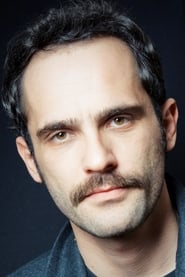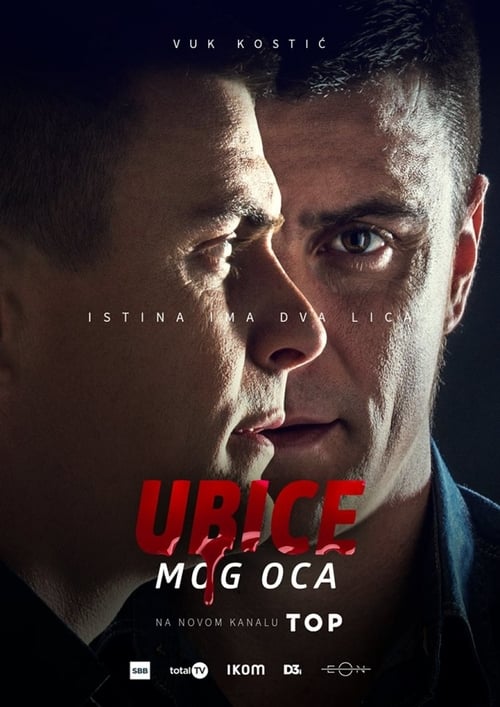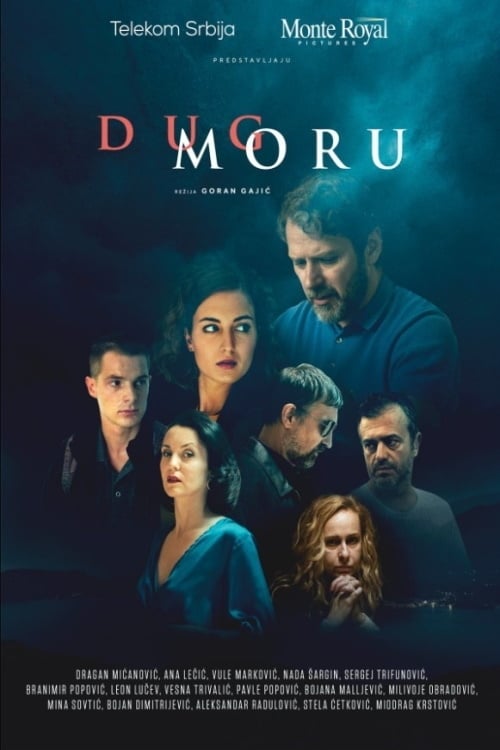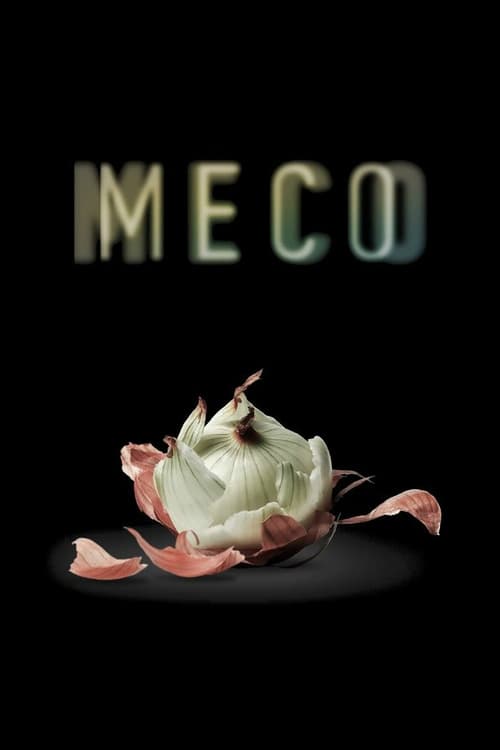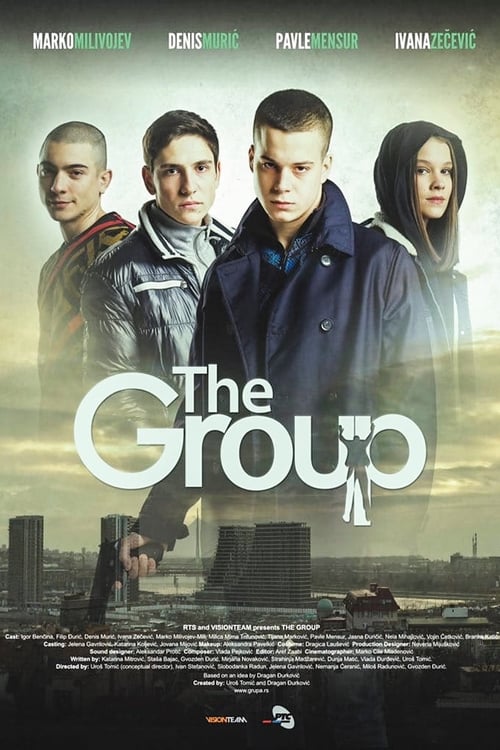
Ask Your Own Question
What is the plot?
The episode opens with a tense atmosphere in a small village in Kosovo, where the protagonist, a man named Kreshnik, is introduced. He is seen in a moment of reflection, contemplating his past and the weight of his family's legacy. The camera captures his rugged features and the scars that tell stories of battles fought, both physically and emotionally. Kreshnik is a man torn between his duty to his family and the desire for a peaceful life.
As the day progresses, Kreshnik is approached by a group of men from the village who are discussing the ongoing tensions with a rival family. The men express their frustrations and fears about the potential for violence, urging Kreshnik to take a stand. Kreshnik, however, is hesitant, feeling the burden of responsibility weighing heavily on him. He knows that any decision he makes could lead to dire consequences for his family and the community.
Later, Kreshnik visits his mother, who is deeply concerned about the escalating conflict. She pleads with him to avoid violence and to seek a peaceful resolution. Her emotional state is palpable, filled with fear for her son's safety and the future of their family. Kreshnik promises her that he will do his best to keep the peace, but internally, he struggles with the expectations placed upon him.
The scene shifts to a local tavern where tensions are high. Kreshnik meets with his childhood friend, who is eager to confront their rivals. The atmosphere is charged with anger and resentment, and Kreshnik feels the pressure mounting. His friend pushes him to take action, suggesting that they should retaliate against the rival family. Kreshnik is torn, caught between loyalty to his friend and his desire to avoid bloodshed.
As night falls, Kreshnik receives a visit from a mysterious figure who presents him with an ultimatum: either he takes action against the rival family or they will come for him and his loved ones. This encounter heightens Kreshnik's internal conflict, as he realizes that the stakes are much higher than he initially thought. The weight of the decision looms over him, and he feels trapped.
In a pivotal moment, Kreshnik decides to confront the rival family. He gathers a small group of men from his village, and they prepare for a confrontation. The tension is palpable as they approach the rival family's territory. Kreshnik's heart races, and he grapples with fear and determination. He knows that this could lead to violence, but he feels he has no choice.
The confrontation escalates quickly. Words are exchanged, and tempers flare. Kreshnik attempts to mediate, urging both sides to reconsider their actions. However, his efforts are met with hostility, and a fight breaks out. The scene is chaotic, with punches thrown and shouts echoing in the night. Kreshnik finds himself in the middle of the fray, trying to protect his friends while also seeking to de-escalate the situation.
In the midst of the chaos, Kreshnik witnesses a brutal act of violence that shakes him to his core. A member of the rival family is seriously injured, and the reality of the consequences of their actions hits him hard. The fight eventually subsides, but the damage is done. Kreshnik is left grappling with guilt and the realization that he has crossed a line that cannot be uncrossed.
The episode concludes with Kreshnik returning home, visibly shaken. He faces his mother, who senses that something has changed within him. The emotional weight of the night's events hangs heavy in the air, and Kreshnik is left to ponder the path he has chosen. The camera lingers on his face, capturing the turmoil and conflict that now defines his existence, setting the stage for the challenges that lie ahead.
What is the ending?
In the ending of "Besa," Season 1, Episode 1, the main character, a man named Luan, faces a critical moment of decision that tests his loyalty and moral compass. As tensions rise, he must confront the consequences of his actions and the impact they have on his family and community. The episode concludes with Luan making a choice that sets the stage for future conflicts, leaving viewers with a sense of uncertainty about his path forward.
As the episode draws to a close, the scene shifts to Luan standing in a dimly lit room, the weight of his choices heavy on his shoulders. He reflects on the events that have transpired, the betrayal he has experienced, and the loyalty he feels towards his family. The camera captures the flicker of doubt in his eyes, revealing his internal struggle.
In the next scene, Luan is confronted by a group of men who represent the opposing side in the ongoing conflict. Their faces are stern, and the atmosphere is thick with tension. Luan's heart races as he realizes the stakes of the confrontation. He knows that his decision will not only affect him but also his loved ones. The dialogue is sharp, filled with accusations and demands, as Luan stands firm, trying to assert his position while grappling with fear and uncertainty.
As the confrontation escalates, Luan's family is brought into the fray. His wife, who has been a source of strength for him, watches with concern, her eyes reflecting the fear of losing him. Their children, innocent and unaware of the gravity of the situation, play in the background, a stark contrast to the adult world of conflict and betrayal that surrounds them. This juxtaposition heightens the emotional stakes for Luan, who is torn between his duty to protect his family and the loyalty he feels towards his community.
In a pivotal moment, Luan makes a choice that reveals his character's depth. He decides to stand up against the men, asserting his beliefs and values, even at the risk of his own safety. The tension reaches a climax as he faces the consequences of his decision, which leads to a violent confrontation. The scene is chaotic, filled with shouting and physical altercations, as Luan fights not just for himself but for the future of his family.
As the dust settles, the aftermath of the confrontation leaves Luan battered but resolute. He returns home, where his wife embraces him, tears in her eyes, a mixture of relief and fear evident on her face. Their children run to him, and in that moment, Luan understands the true weight of his choices. The episode ends with a lingering shot of Luan looking out into the distance, contemplating the uncertain future that lies ahead, symbolizing the ongoing struggle between loyalty and morality.
In summary, the ending of "Besa" Episode 1 encapsulates the themes of loyalty, family, and the moral dilemmas faced by individuals in times of conflict. Luan's fate is left hanging in the balance, setting the stage for the challenges he will face in the episodes to come.
Is there a post-credit scene?
In the first episode of "Besa," there is no post-credit scene. The episode concludes without any additional scenes or teasers after the credits roll. The focus remains on the unfolding narrative and character development throughout the episode, setting the stage for the story to come without any extra content at the end.
What motivates the main character, a hitman, in Episode 1 of Besa?
In Episode 1, the main character, a hitman named 'Besa', is driven by a complex mix of loyalty and survival. He is deeply influenced by his past and the relationships he has with his family and friends, which often conflict with his violent profession. His internal struggle is palpable as he navigates the moral dilemmas of his job while trying to protect those he loves.
How does the relationship between Besa and his mentor unfold in this episode?
In Episode 1, the relationship between Besa and his mentor is characterized by a mix of respect and tension. The mentor, who has been a father figure to Besa, pushes him to embrace the darker aspects of their profession. However, Besa's reluctance to fully commit to this life creates a rift, showcasing his internal conflict and desire for a different path.
What key event triggers the main conflict in Episode 1?
The key event that triggers the main conflict in Episode 1 occurs when Besa is assigned a hit that directly threatens someone he cares about. This assignment forces him to confront his loyalties and the consequences of his actions, setting the stage for the moral dilemmas he will face throughout the series.
How does Besa's family react to his profession in this episode?
In Episode 1, Besa's family is largely unaware of the full extent of his profession as a hitman. However, there are subtle hints of tension, particularly with his partner, who senses something is off. This creates an emotional undercurrent, as Besa struggles to maintain a facade of normalcy while grappling with the violent reality of his life.
What role does the setting play in establishing the tone of Episode 1?
The setting in Episode 1 plays a crucial role in establishing a gritty and tense tone. The urban landscape is depicted with dark alleys and dimly lit bars, reflecting the dangerous world Besa inhabits. This environment amplifies the sense of urgency and peril that surrounds his actions, immersing the audience in the high-stakes atmosphere of his life as a hitman.
Is this family friendly?
"Besa," season 1, episode 1, contains several elements that may not be suitable for children or sensitive viewers. Here are some potentially objectionable aspects:
-
Violence: The episode includes scenes of physical confrontations and threats, which may be intense for younger audiences.
-
Crime and Corruption: The narrative revolves around themes of organized crime, betrayal, and moral ambiguity, which could be unsettling for some viewers.
-
Emotional Turmoil: Characters experience significant emotional distress, including fear, anger, and desperation, which may resonate deeply and be upsetting.
-
Adult Themes: The storyline touches on complex adult relationships and ethical dilemmas that may not be appropriate for children.
-
Language: There may be strong language used in tense situations, which could be considered inappropriate for younger viewers.
These elements contribute to a mature tone that may not be suitable for all audiences.


